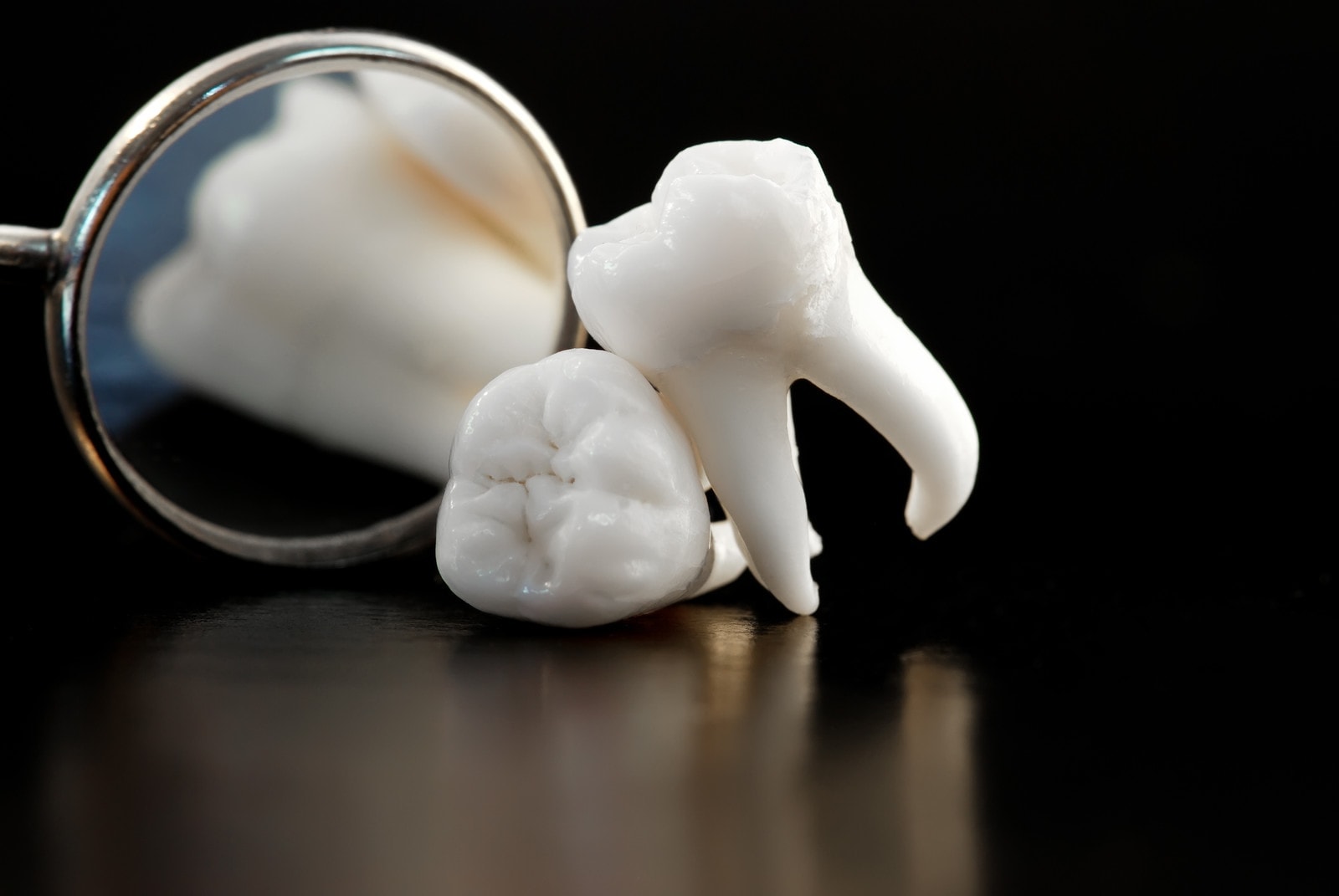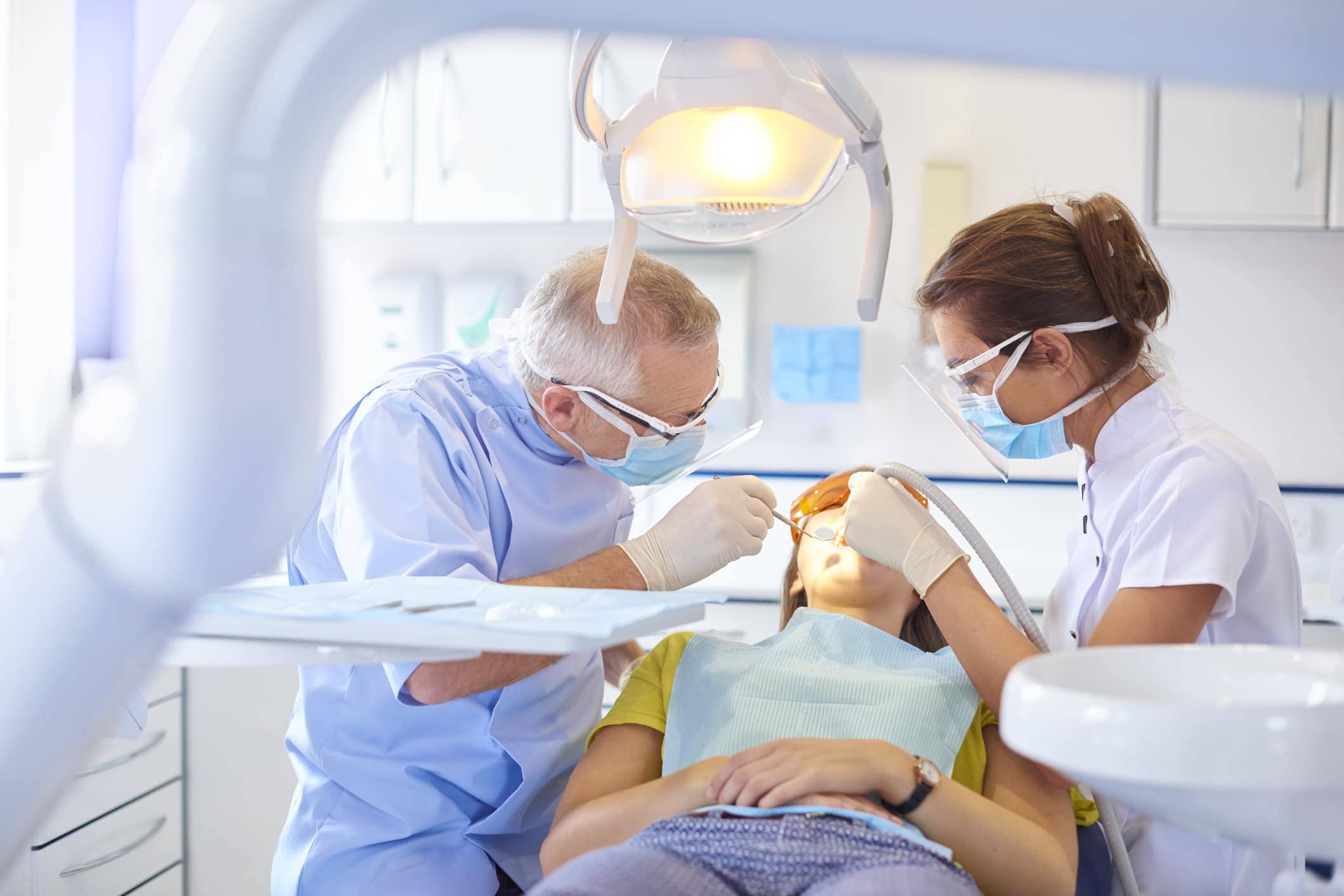Tooth Extraction Near You
Tooth extraction is a dental procedure that involves the surgical removal of a tooth. The reason a tooth or teeth are removed can be for a variety of reasons. For example, the tooth could be causing pain or creating oral health issues for the patient. The most common reason for tooth extractions is when a tooth or teeth are impacted, which can affect their ability to develop correctly and erupt from the gums. There are also a few types of extractions such as wisdom tooth extractions and simple extractions, which are recommended depending on the patient’s specific case.

Simple Tooth Extraction
If you experience chronic tooth sensitivity or are diagnosed with advanced periodontal disease, your dentist may recommend a simple tooth extraction near you. A simple tooth extraction allows your dentist to remove the affected tooth without requiring major surgery to be performed.
Reasons for simple tooth extractions in Cranbrook, BC V1C 6L2:
- Advanced periodontal disease loosening the tooth roots
- Extra teeth or baby teeth impeding adult teeth
- In preparation for receiving certain orthodontic treatment
- To remove fractured or malformed teeth
- When excessive tooth decay is present and cannot be remedied by root canal treatment

Wisdom Tooth Extractions
Wisdom teeth, usually called third molars, are oftentimes the last few teeth that develop in the mouth. They generally appear between the ages of 17 and 25. Most times, the lack of enough space in the mouth prevents the wisdom teeth from fully emerging from the gums. When this occurs, the tooth can become impacted or stuck in a position that is potentially harmful to the patient’s oral health. If the impacted tooth is left untreated, this can leave the area vulnerable to infection, cause damage to nearby teeth, and potentially cause cysts or tumours to develop in the mouth.

Reasons to Remove Wisdom Teeth
Although some wisdom teeth do not require removal, wisdom teeth extractions may be performed for the following reasons:
- Damage to neighbouring teeth: Teeth directly in front of the wisdom teeth (second molars) can be affected by the impacted wisdom teeth. This can lead to tooth decay, periodontal disease, and bone loss.
- Disease: In rare cases, cysts and tumours may develop in the areas surrounding the impacted wisdom teeth.
- Infection: Infection can arise due to bacteria and food getting stuck under the gum tissue. The infection can cause pain and the development of other oral health complications.
- Tooth crowding: Impacted wisdom teeth can put pressure on the other teeth and cause misalignment (crowded or twisting) as a result.
After Tooth Extractions
Tooth extraction near you can be a serious dental procedure depending on the patient’s specific case. As long as the patient listens to the dentist’s instructions in regard to pain management, proper oral care, and dietary restrictions, the risk of further complications is unlikely.
Post-surgery care is as follows:
- Apply pressure on the gauze pad that your dentist placed on the treated area by gently biting down. Moisturize the gauze sponge periodically to prevent it from drying out. Maintain continuous pressure on the gauge pad in intervals of 45 to 60 mins. You can repeat until the bleeding stops. Change the gauze pad when needed.
- Keep the direction of your head facing upwards and avoid as much activity as possible.
- 48 hours post-operation – be sure to rinse your mouth with lukewarm water containing salt. Do this frequently at an interval of 1 to 2 hours.
- Clean your mouth but be careful to avoid the sutures. Keep your mouth clean by brushing around the treated area. Avoid direct contact with the treated area.
- Avoid the use of mouthwash containing alcohol as it can inflame the wound.
- The use of ice packs can help control the swelling. You can apply them to the facial areas near the surgical site.
- Keep in touch with your Cranbrook dentist and report any emergencies immediately.
- Medications should be taken according to the prescription.
- Eat softer food and liquids. Preferably, those rich in protein should be eaten.
- Stay hydrated by taking in plenty of fluids, but do not use a straw for 5 to 7 days.
- If you are a smoker, avoid smoking for 3-4 days so as to avoid infection or a dry socket.
The healing process varies with each patient and will take some time before the area is fully healed. Stitches should fall out or dissolve within 5 to 14 days, or they may need to be removed by your dentist. The empty socket of your tooth will fill with bone over time.
If you have any questions about tooth extraction in Cranbrook, BC V1C 6L2 please be sure to contact a member of our dental staff today!
